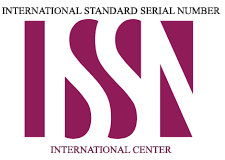-
Language
-
Literature
-
Culture
-
History
The Dynamic Impact of Digital Literacy-Based Instruction on Iranian EFL Learners’ Language Achievement
Volume 4, Issue 3, 2023, Pages 1 - 10
1- Ph.D. in TEFL-Assistant Professor, English Department, Hafez Institute of Higher Education, Shiraz, Iran
2- M.A. Student of TEFL, English Department, Hafez Institute of Higher Education, Shiraz, Iran
Abstract :
This study was designed to determine the effect of digital literacy-based instruction on Iranian EFL learners’ English language achievement. For the purpose of this study, two intact classes from eighth-grade at a bilingual high school in Shiraz were selected. One was assigned to be the experimental group and the other was assigned to be the control group. Fifty-six participants constituted the sample of the study. In order to check their homogeneity, the English language proficiency level of the participants was determined by OQPT. The experimental class received treatment whereas the control class followed the conventional instruction. Students were pre-tested and post-tested on their knowledge of digital literacy and English language achievement through a digital literacy questionnaire and two parallel English language tests based on their course book. Also, an interview was administered to some of the learners to apprehend their attitudes toward digital literacy. The findings of the study illustrated that there was no significant difference between the control and experimental groups on the pretests of their digital literacy and language achievement. The results inferred that students who enjoyed treatment in the form of digital literacy-based instruction, received both statically and practically significantly higher scores on English language achievement post-test than did the students in the control group. The interview results showed that the overall learners’ attitude toward digital literacy is positive while they meet several challenges. Also the students in the experimental group who went through the digital literacy-based instruction made more relative gains than their counterparts in the control group with regard to their level of digital literacy. The results of the current study suggest that using digital literacy-based instruction leads to higher achievements in learning the English language. The findings of the study indicated that a more planned use of digital literacy-based instruction can reinforce English language learning.

